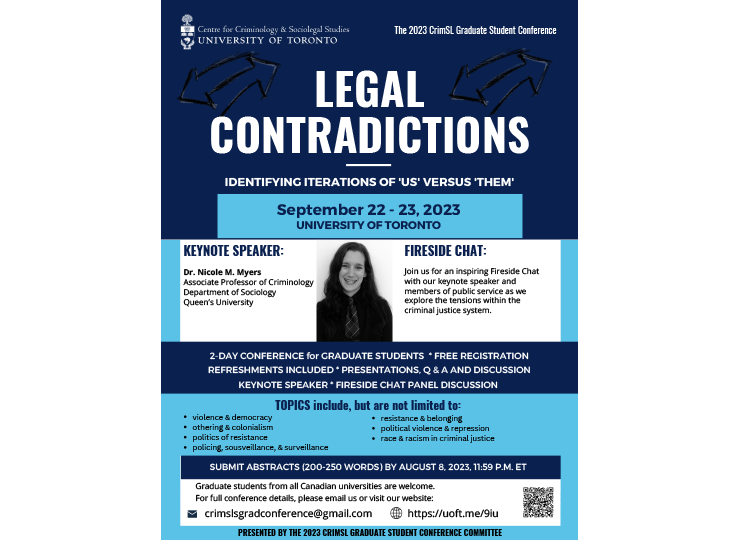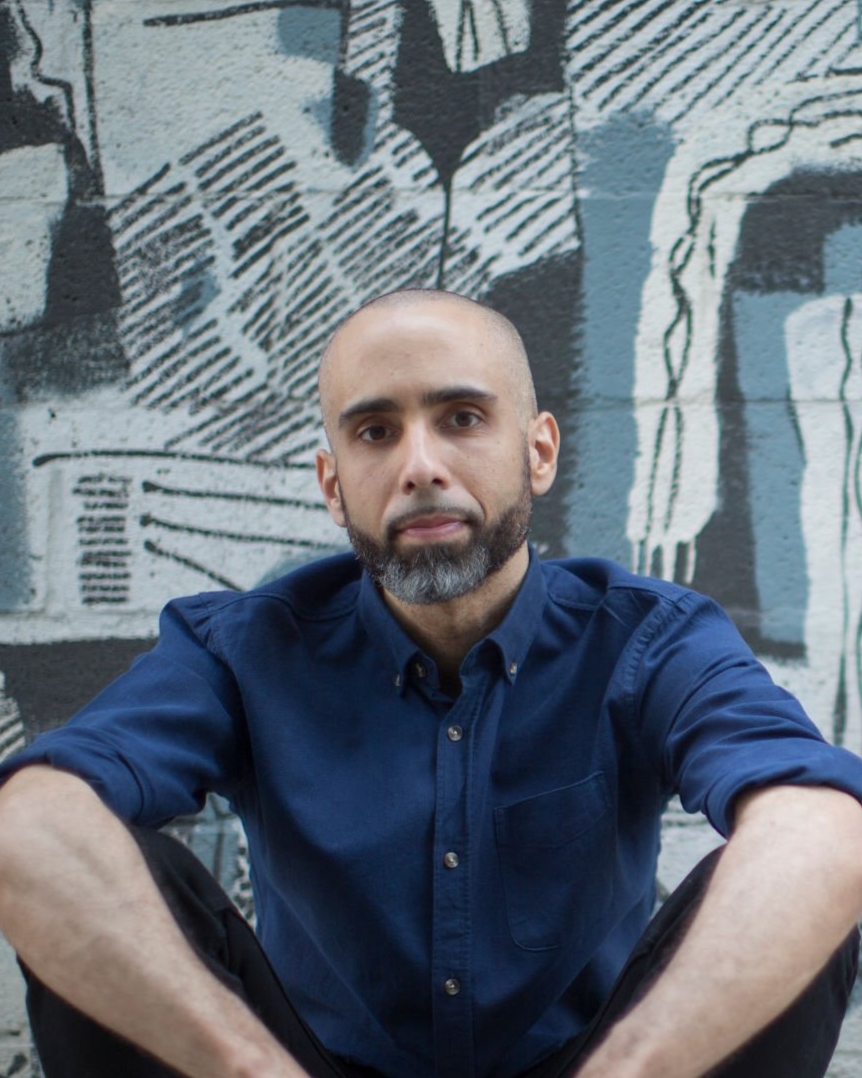The Politics of Resistance and Belonging
The Centre for Criminology and Sociolegal Studies is now accepting artistic and paper submissions from students across Canada and the United States for the 2025 Graduate Student Conference on April 25, 2025. This year’s theme is The Politics of Resistance & Belonging.
This one-day conference will take place in person at the Centre for Criminology & Sociolegal Studies, Canadiana Gallery building, University of Toronto, 14 Queens Park Cres. W.
There is no fee to attend or present.
The call for submissions is now open!
Description
The purpose of the conference is to shed light on the nature of resistance, how it relates to belonging and other terms like solidarity, resilience and rebellion, engage in conversations about coercive powers of exclusion, use of violent measures, and consider the tensions and conflicting messages that exist when people engage in resistance and are subjected to criminalization.
The conference is meant to provide attendees with new analytical insights on the contradictions inherent and implied, in resisting and belonging, as understood from criminological, legal, and sociolegal, anthropological and geographical perspectives, for example. The theme is also centered on the disparate impact that colonial histories, legal, pseudo-legal, and informal practices have on racial, ethnic, and political groups, and which ultimately create ‘us versus them’ dichotomies.
This is an exciting opportunity for PhD and advanced MA students to present research and works of art within this theme for feedback among supportive peers. We welcome submissions from criminology, sociolegal studies, sociology, law, psychology, history, science and technology studies, anthropology, public policy, geography and related disciplines. Applications should be submitted using the online form.
Topics include, but are not limited to:
- How does ‘resistance,’ broadly construed, both uphold and undermine a democratic or undemocratic society?
- How does ‘belonging,’ broadly construed, relate to a democratic or undemocratic society? Can it exist beyond borders?
- How does the use of ‘resistance,’ broadly construed, relate to terms like resilience and rebellion?
- Does ‘resistance,’ broadly construed, require solidarity?
- Does ‘resistance,’ broadly construed, necessarily involve the practice of othering
- What is the relationship between resistance, belonging, othering and colonialism? How is belonging or othering informed by colonialism?
- How does the use of violence on the part of the resisters or those who attempt to subdue them come into play?
- What are the implications of the criminalization of resistance from a local, national and international perspective?
- What is the nature of repression in resistance and belonging?
Timeline
- Submission deadline: January 19, 2025 11:59 pm
- Notification of selection: January 31, 2025
- Conference date: April 25, 2025
Questions?
Please contact the 2025 CrimSL Graduate Student Conference Committee at gradconf.crimsl@utoronto.ca with any questions.
Previous CrimSL Graduate Student Conferences
Legal Contradictions: Identifying Iterations of Us versus Them

The Centre for Criminology and Sociolegal Studies at the University of Toronto, invites graduate students from across the country to attend the 2023 Graduate Student Conference on September 22 – 23, 2023. This year’s theme is Legal Contradictions: Identifying Iterations of Us versus Them. The purpose of the conference is to shed a unique light on the letter of the law, engage in conversations about coercive powers of exclusion, and consider the tensions and conflicting messages that exist within our adversarial criminal justice system. The conference is meant to provide attendees with new analytical insights on the contradictions inherent and implied, in both formal and informal laws and customs, as understood from criminological, legal, and sociolegal perspectives. The theme is also centered on the disparate impact that legal, pseudo-legal, and informal practices have on racial, ethnic, and political groups, and which ultimately create ‘us versus them’ dichotomies.
Topics include, but are not limited to:
-
How does ‘violence,’ broadly construed, both uphold and undermine a democratic society?
-
How does the use of ‘violence,’ broadly construed, entrench the practice of othering?
-
What is the relationship between othering and colonialism? How is othering informed by colonialism?
-
The politics of resistance and belonging
-
Consider policing, sousveillance, and surveillance strategies that are deployed in carceral and/or non-carceral settings (i.e., among private citizens in society).
-
Punishment in the absence of a formal conviction: pretrial detention; the bail system; the presumption of innocence and the prevalence of guilty pleas; wrongful convictions; the treatment of inmates within the correctional system; etc.
-
The reverberating effects and collective impact of incarceration. For example, consider the ways in which families are treated and (in)formally punished by the criminal justice system despite being both factually and legally innocent.
-
Conceptions of risk, risk aversion, actuarial justice, and management/managerialism within the criminal justice system.
-
(The functions of) race and racism in the criminal justice system.
-
Political violence and repression.
![]() Download the Call for Abstracts for Legal Contradictions (PDF).
Download the Call for Abstracts for Legal Contradictions (PDF).
![]() Download the Conference poster for Legal Contradictions (PDF).
Download the Conference poster for Legal Contradictions (PDF).
Conference Schedule
![]() Official Conference Schedule.pdf
Official Conference Schedule.pdf
Keynote speaker

Dr. Nicole M. Myers is Associate Professor of Criminology in the Department of Sociology at Queen’s University in Kingston, Ontario. She has been studying issues around bail and pre-trial detention for almost two decades. Her work focuses on the bail process, sureties and conditions of release, court culture, organizational risk avoidance, the criminalization of non-criminal behaviour, the administration of justice and criminal law policy. Using a mixed methodological approach, she has conducted over 300 days of bail court observation, reviewed over 500 completed criminal case files and conducted hundreds of in-depth interviews with criminal justice professionals, people who have experiences with pre-trial detention and people who have acted as a surety for someone. She has published numerous peer-reviewed academic papers about bail in Canada, prepared reports about bail together with the Canadian Civil Liberties Association and Legal Aid Ontario and has presented her research at national and international conferences. She is the Court Node co-lead on a SSHRC Partnership Grant " Intersecting Institutions of Criminal Justice and Injustice" led by Dr. Sandra Bucerius at the University of Alberta. Her work has been cited by the Supreme Court of Canada in R. v. Zora, 2020, R. v. Myers, 2019, R. v. Penunsi, 2019 and R. v. Antic 2017.
Fireside Chat
The fireside chat will take place from 1:00 p.m. to 3:00 pm on Saturday, September 23, 2023, and will be moderated by Dr. Philip Goodman. At this event, graduate student presenters and conference attendees will listen to and learn from scholars in the field of criminology and sociolegal studies as they discuss important matters on legal contradictions and criminal injustice. From 1:00 p.m. to 2:15 p.m., we will hear insights from our speakers. From 2:15 p.m. to 3:00 p.m., presenters and attendees will be invited to ask the speakers questions related to our conference theme.
We are excited to have our Keynote Speaker, Dr. Nicole M. Myers, and Dr. Julius Haag join us for this event! See you there.
Fireside Chat Panel
 (Moderator) Philip Goodman is an Associate Professor of Sociology at the University of Toronto and Department Chair at the University of Toronto Mississauga. His research uses prisons and punishment—and crime and law, more generally—as lenses to understand inequality, penal politics, and the micro-dynamics of everyday life. This scholarship has been published in a variety of journals including the American Journal of Sociology, British Journal of Criminology, Canadian Review of Sociology, Law & Social Inquiry, Social Problems, and Theoretical Criminology.
(Moderator) Philip Goodman is an Associate Professor of Sociology at the University of Toronto and Department Chair at the University of Toronto Mississauga. His research uses prisons and punishment—and crime and law, more generally—as lenses to understand inequality, penal politics, and the micro-dynamics of everyday life. This scholarship has been published in a variety of journals including the American Journal of Sociology, British Journal of Criminology, Canadian Review of Sociology, Law & Social Inquiry, Social Problems, and Theoretical Criminology.

(Panelist) Julius Haag is an Assistant Professor, Teaching Stream in the Department of Sociology at the University of Toronto Mississauga. His areas of interest include policing, youth justice, racialization, ethnicity, criminalization, and teaching and learning. His research draws on urban sociology, critical race theory, and cultural criminology to explore the individual and community-level impacts of policing and criminalization on young people from racialized and marginalized backgrounds, with a focus on young people from the Afro-Caribbean community.
Conference Location
Centre for Criminology & Sociolegal Studies, University of Toronto, Canadiana Gallery, 14 Queen’s Park Crescent West, Toronto, Ontario, M5S 3K9
Please note:
This year’s conference will be held in person and registration is required for all attendees via Eventbrite. Registration is now closed. While we warmly invite graduate students from across the country to attend the conference, presenters and all conference attendees are responsible for making their own travel and lodging arrangements. If you would like assistance with locating accommodation close to the conference, please contact the Committee using the contact details at the end of this document.
Submission Guidelines
Please submit an abstract of 200 to 250 words using this link.
We welcome submissions from criminology, sociolegal studies, sociology, law, psychology, history, science and technology studies, anthropology, public policy, and related disciplines.
Submission Deadline
Tuesday, August 8, 2023 at 11:59 p.m.
Date By Which the Committee Will Confirm the Receipt and Acceptance of Submissions
Monday, August 28, 2023 at 11:59 p.m.
Please note that guidelines, stipulating the prescribed length of the presentation and other pertinent details, will be sent in a separate email. The conference itinerary will also be sent via email in late August.
Thank you for your interest in the conference.
We look forward to receiving your submission, and hope to see you in September.
Best regards,
The 2023 CrimSL Graduate Student Conference Committee,
Centre for Criminology & Sociolegal Studies,
University of Toronto
Contact: crimslsgradconference@gmail.com
Web: https://uoft.me/9iu
About the 2023 CrimSL Graduate Student Conference Committee
This year’s conference is organized by second-year PhD students of the Centre for Criminology and Sociolegal Studies at the University of Toronto. The committee members are Sara Ali, Camille Hazzard, Joana Jabson, and Jeffrey Wong.
- Sara Ali's research interests include human rights; diversity, equity, and inclusion; and transformative justice.
- Camille Hazzard's research interests include dataveillance, surveillance, and the commodification of data; how humans interact with smart technologies, and the social-psychological, socio-economic, and legal implications of technology use; and how human behaviour is regulated (and influenced by technology) in carceral and non-carceral contexts.
- Joana Jabson's research interests focus on displacement, violence, gentrification, incarceration, and public policy. Joana has been working for the Ontario Ministry of the Solicitor General for more than five years where she developed a keen interest in understanding gentrification, punishment, crime, and public policy. She aims to understand the intersection of gentrification, crime, recidivism, and housing in her PhD studies.
- Jeffrey Wong is interested in the relationship between religiosity, offending, and protest policing practices. He would also like to explore the intersection between criminology and theology in the public sphere.
Sara, Camille, Joana, and Jeffrey look forward to meeting and learning from you this September!
Towards Decarceration: Abolition and the Carceral State
* This conference did not take place *
Conference date: March 31 to April 1, 2022 — Postponed until further notice
The work of abolition is not confined to policing and prisons; rather, it is about the broader contours of the “carceral state”--the interconnected roles of detention, corrections and law enforcement, as well as the policies, non-governmental institutions (both non-profit and for-profit) and ideologies that ground state investment in policing, punishment and incarceration.
Contact: crimslsgradconference@gmail.com
Call for papers (now passed)
Deadline for submissions: February 7, 2022
Download the CFP: ![]() Towards Decarceration: Abolition and the Carceral State - Call for Papers
Towards Decarceration: Abolition and the Carceral State - Call for Papers
We invite papers that address the following themes:
· Prisons, punishment, mass incarceration and the “prison industrial complex” · Prison reform and abolition · Policing and movements to defund and/or abolish the police · Immigration detention and refugee camps · Settler colonialism and decolonization · Race, racism and the carceral state · Prison activism · Alternatives to incarceration · Capital, labour and political economy in the carceral state · Enclosure, segregation and apartheid · Carceral feminism, gender, sexuality and the carceral state · Abolition and Environmentalism
Submission guidelines:
Deadline for submissions: February 7, 2022
We welcome abstract submissions from graduate students in criminology, sociolegal studies, law, sociology, geography, history, political science, education, women and gender studies, and related disciplines.
Please send an abstract of 250-300 words to crimslsgradconference@gmail.com
Be sure to include: Paper title / Presenter name(s) / Institutional affiliation / Program of study / E-mail addres
The conference will be held virtually. Further information about the panels, keynote speakers, conference format, and length of presentations will be sent out at a later date
Contact: crimslsgradconference@gmail.com.
Conference date: March 16, 2021 — Online
The Centre for Criminology and Sociolegal Studies Graduate Student Conference wants you to experience the common tenets of academic conferences—virtually! Transformative Justice within Academia: A Radical Institutional Reflection is thoughtfully organized to reinvigorate the academic community’s love for deep, thoughtful and creative discussions with colleagues, networking opportunities as well as sustenance in the form of food to keep us going throughout the day.
The aim of this conference is to engage in conversations about structural and systematic inequality, social and racial injustices towards a radical institutional reflection of academia, a place that has long established itself as an exceptional, progressive, critical, and safe environment. As academics focused on institutional violence embedded within the Canadian legal framework, we call for an internal investigation of how similar processes of violence are augmented in academia. Through an application of a radical institutional reflection, the conference papers focus on curriculum, policies & procedures as well as personal experiences of historically marginalized groups in the field of criminology and socio-legal studies. As student researchers who are responsible for shaping the future of the field of criminology and socio-legal studies, this conference serves to imagine critical and radical transformative justice that starts from within the very institution we are all a part of.
Please refer to our conference schedule for more information. This is an open event; everyone is welcome to attend. If you have special accessibility needs, please send us a request 14 days prior to the event. This is to ensure that we are able to provide the requested service. We do not require documentation from doctor etc for request for accommodation.
Contact: crimslsgradconference@gmail.com
Call for papers (now passed)
Deadline for submissions: January 22, 2021 - EXTENDED
Download the CFP: ![]() Transformative Justice within Academia - Call for Papers EXTENDED
Transformative Justice within Academia - Call for Papers EXTENDED
Academia has long established itself as an exceptional, progressive, critical, and safe environment. However, its policies, bureaucratic processes, research, teaching and mentorship practices are replete with structures that perpetuate inequalities, highlight mental and health implications and continue to disproportionately harm graduate students. As BIPOC students continue to experience structural and interpersonal violence such as hyper policing, carding and police violence on and off-campus, the institution continues to posture around issues of inequality. Politically correct emails sent out by faculty, staff and students do not address inequality, race, racism, police brutality/privatized security/campus police, and colonial violence within academia. This conference promises to begin a conversation about the structures that reproduce inequalities and the punitive state within educational spaces, unevenly impacting BIPOC students. Furthermore, the conference recognizes graduate student researchers as the future of academia and, as such, we aim to collectively imagine critical and radical educational spaces and pedagogies, while collectively contributing to theory-making, as well as drafting practical recommendations and policies targeted at achieving institutional changes that support graduate students.
Consider the following themes and questions:
- How do current institutional structures perpetuate inequalities and accentuate vulnerability within academia?
- Policies/procedures on how to handle ‘difficult’ students
- Mandated leave policy
- New marijuana laws and University’s policies on cannabis use
- Campus police and other surveillance mechanisms that disproportionately impact BIPOC students or students that live with mental health conditions
- Normalization of students’ poverty, angst, stress, and uncertainty
- What knowledge and ways of knowing are awarded and/or penalized?
- What do transformative justice and non-punitive academia look like? What changes are required to produce it?
- Drawing on critical race studies, prison abolitionists, anti-colonial, decolonizing and postcolonial scholarship, what can a reimagined space of learning look like?
Submission guidelines:
Deadline for submissions: January 15, 2021We welcome abstract submissions from criminology, sociolegal studies, sociology, and related disciplines. Please send an abstract of not more than 200-250 words to crimslsgradconference@gmail.com
Include a paper title, your full name, institutional affiliation, your program of study, and email address. Further information about panels, the conference dynamics, and the length of presentations will be sent out at a later date once the program is finalized.
Graduate students are welcome to present ideas that are not fully developed into papers. The conference provides an opportunity for emerging academics to think through transformative justice collectively.
The conference will have a workshop format where participants will be able to further work on their papers. Selected papers will be considered for a collective publication.
Contact
crimslsgradconference@gmail.com
Date: March 12, 2020 & March 13, 2020
Location: 14 Queen’s Park Crescent WestToronto, Ontario (M5S 3K9)
Mass mobilizations are often framed as power struggles between governmental institutions and civilian organizations with specific end goals. However, from Indigenous anti-pipeline protests in the Global North to the #MeToo movement, resistance has manifested itself in many distinct shapes and forms. In a time of increasingly growing economic, social, and political inequality, within and across nations, there is a pressing need for change. It is important to diversify current socio-legal narratives surrounding what constitutes power and protest. This conference aims to provide the opportunity for emerging scholars to critically understand, rethink, and re-contextualize mobilization in today’s world.
Revised Schedule
This year’s conference will span over two days, beginning on March 12 with a workshop series.In the MORNING, a Writing Workshop will be organized and facilitated by Dr. Daniel Newman, Director of Graduate Writing Support at the University of Toronto.
Following, in the AFTERNOON, Dr. Akwasi Owusu-Bempah will lead a Professional Development workshop on the topic of Scholars and Social Media.
Registration and Breakfast 10:00 AM — 10:30 AM
WORKSHOP 1—Writing: Daniel Newman, PhD 10:30 AM—12:00 PM
Developing Your Scholarly Voice: Strategies for Writing Like a Pro/f
Lunch 12:00 PM—12:30 PM
Speaker Series: Professor Constance Backhouse (attendance is optional) 12:30 PM—2:00 PM
Racial bias and judging: spotlight on the R.D.S. case, 1993-97
Break 2:00 PM—2:15 PM
WORKSHOP 2—Professional Development: Professor Akwasi Owusu-Bempah,PhD 2:15 PM—3:45 PM
Scholars in Public Scholarship
On March 13, panels will open with a keynote address from Dr. Mugambi Jouet, Assistant Professor at McGill University, lawyer, and author of Exceptional America: What Divides Americans from the World and from Each Other.
Registration and Breakfast 10:00 AM—10:20 AMOpening remarks—Professor Audrey Macklin, Director of Centre 10:20 AM—10:30 AM
Keynote Address & Q+A—Professor Mugambi Jouet, McGill University 10:30 AM—12:00 PM
Break 12:00 PM—12:15 PM
PANEL/SESSION I 12:15 PM—1:45 PMPOWER AND DISSENT: MAKING SENSE OF STATE AND NON-STATE VIOLENCE
Danielle HurdReconceptualizing Violence: An Argument Against the Categorization of the Earth Liberation Front and the Animal Liberation Front as Ecoterrorists
Inês FerreiraDigilantism as a Breach in the State’s Violence and Legal Monopoly
Robert GiannettaCanadian Justice/Indigenous (In)Justice: Decolonization of the Criminal Justice System
Julia Conceição MogusAn Assemblage Theory Analysis of the Relationship Between Indigenous Intellectual Property And State Resistance To Shared Sovereignty in Canada
Lunch 1:45 PM—2:30 PM
PANEL/SESSION II 2:30 PM—4:00 PMMOBILIZING IDENTITY AND GROUP BELONGING
Jennifer Del RiccioNevertheless, They Persisted: The Indian Act, R v Barton, and Power Through Protest by Indigenous Women in Canada
Sara Fruchtman‘All the Work We Do as Women’: Solidarities Between the Wages for Houseworkand Sex Workers’ Rights Movements
Isra SaghirCrushing Culture, Dismantling Defiance: Cultural Heritage and Mass Mobilization in Iraq
Katelyn SquiresThe Opium of Nationalism: Belonging, Trauma and Dissidence in Northern Ireland
Mix & Mingle: Conference Social—Centre Lounge (second floor) 5:30 PM—7:30 PMJoin us for hors d’œuvres and canapés as we bring the conference to a close.
Participation
As this is an interdisciplinary graduate conference, we welcome submissions from graduate students involved in research outside of, but related to, the disciplines of criminology, sociolegal studies, and sociology. Some critical issues this conference will cover, but are not limited to, are the following:
- Race and racism in the criminal justice system
- Political violence and repression
- Inequality and social polarization
- Social justice and criminal justice activism
- Accountability, oversight and legitimacy
- Protest policing
- Anti-protest strategies and legitimacy
- Mobilization organizations and tactics
We invite graduate students to submit abstract proposals to discuss these critical issues, or explore other issues that fall within the realm of this year’s conference theme.Registration is free and lunch will be provided.
For further inquiries, please contact crimslsgradconference@gmail.com.
The University of Toronto’s Centre for Criminology and Sociolegal Studies is pleased to announce its one-day graduate conference entitled Borders and Barriers: Understanding Criminalization and Challenges to Human Rights
Conference date: March 8, 2019 (9:00 a.m. – 5:00 p.m.)
Location: Canadiana Gallery (14 Queen’s Park Crescent West, Toronto, ON M5S 3K9)
The simplest way to imagine borders is to think of a territorial divide. However, socio-legal narratives have continuously challenged and broadened our familiar conceptualization of borders and boundaries. They have also come to represent invisible yet concrete barriers that affect different communities, identities, and individuals, particularly those in conflict with the law and those affected by it. This conference provides the opportunity for emerging scholars to critically understand, rethink, and reconcile our common conceptualization of borders. Our goal is to explore not only the human rights barriers they erect through policy and practice, but also their dire consequences on individuals and societies at a global, humanistic level.
Preliminary Schedule
![]() CrimSL Student Conference Program 2019
CrimSL Student Conference Program 201910:00 AM to 10:20 AM – Registration10:20 AM to 10:30 AM – Opening Remarks.
10:30 AM to 12:00 PM – Session I – Institutional Barriers in Criminal Justice Policy (Facilitator: Daniel Konikoff)
- Road Safety and the Lifeworld: Unintended Social Barriers of Canada’s New Drug-Impaired Driving Legislation, Devon Valentine, Sociology, Queen’s University
- Problematic Justifications for Border Control Policies: Family Separation in the United States, Kanwal Khokhar, Criminal and Social Justice, Ryerson University
- Putting the Crown on Trial: An Exploration of Law and Practice of Prosecutorial Discretion in Sexual Assault Cases, Priyanka Sharma, Criminology & Sociolegal Studies, University of Toronto
- The Rape Shield’s Defective Policy Cycle, Danielle McNabb, Criminology and Criminal Justice Policy, University of Guelph
12:00 PM to 12:10PM – Break12:15 PM to 2:00 PM – Session II – Criminalization of Migration and Asylum (Facilitator: Jona Zyfi)
- Religion or Economy: What Makes Rohingya Stateless, Atm Shaifullah Mehedi, Sociology, Queen’s University
- How Are We Doing? Newspaper Representation of Migrant Criminality in Western Democracies, Victoria Harraway, Criminology, Simon Fraser University
- Asylum Seekers in Lacolle, Quebec: Securitized Encounters at the Canadian Data Border, Jamie Duncan, Faculty of Information, University of Toronto
- The Humanitarian Governance of Victimhood: Identifying Migrant Victims of Human Trafficking and Modern Slavery in the UK, Abbey Wright, Sociology, Carleton University
- Furthering the Discussion on Trans-National Radicalization: Somali Canadians on Al-Shabaab, Nadar Mahamud, Criminology and Social Justice, Ryerson University
2:00 PM to 3:00 PM – Lunch Break3:00 PM to 4:15PM – Session III – Carceral Barriers (Facilitator: Kadija Lodge-Tulloch)
- Bounded Bodies: Carceral Spatialities of Institutional Transfer and Urban Parole Upon Indigenous Prisoners, Joshua Shaw, Osgoode Hall Law School, York University
- Removed and Replaced: The Psychosocial Barriers to Prison Re-Entry, Alyssa Leblond and Samantha Cima, Criminology, University of Ottawa
- Monetizing Trauma: The Case of Omar Khadr, Aqsa Bhagat, Socio-Legal Studies, York University
- Spatial Closure and Practical Penalization: The Case of Goutte d’Or in North-Paris, Khalil Habrih, School of Sociological and Anthropological Studies, University of Ottawa
4:15 PM to 4:30 PM – Closing Remarks5:00 PM – Social (Prenup Pub)For further inquiries, please contact crimslsgradconference@gmail.com.
![]() CrimSL Student Conference CFP 2019 – please note January 25th deadline)
CrimSL Student Conference CFP 2019 – please note January 25th deadline)
We invite you to join the 2018 Annual Graduate Student Conference hosted by the University of Toronto’s Centre for Criminology and Sociolegal Studies. Our school is on territories governed by the Dish With One Spoon Treaty, home to the Anishinaabe, Mississauga, and Haudenosaunee peoples. We are grateful to work and learn on this land.
The conference provides graduate students an opportunity to present their academic research in an interdisciplinary context and network with others doing work on related issues.
With the spread of extreme nationalism and populism across Canada and beyond, disputes over social exclusion, immigration and refugee policies, and shifting modes of regulation have captured public attention. The current political climate has contributed to the further marginalization of subaltern groups, while calls for progressive reform have failed to produce, or meet demands for, substantive change. It is essential, perhaps now more than ever, that we map the current criminological and sociolegal landscape in Canada, to examine how we define and respond to current events, emergent trends in governance, and question if and how individuals and the institutions that regulate the already marginalized are held accountable.
Graduate Student Conference Program, 2018
11:00 am – 11:20 am: Registration11:20 am – 11:30 am: Opening Remarks from Prof. Audrey Macklin, Director of the Centre for Criminology and Sociolegal Studies11:30 am – 1:00 pm: Session I – Canadian Carceralities and Penology Facilitator: Samantha Aeby
- A Questionable System of Penal Reform in Canada: A historical approach to understanding rehabilitation for ex-offenders, Kadija Lodge-Tulloch, Criminology and Sociolegal Studies, University of Toronto
- A Comparative Analysis: The wrongful convictions of Indigenous Peoples in Canada and Australia, Ferdouse Asefi, Criminology and Sociolegal Studies, University of Toronto
- Life After Wrongful Conviction: Exploring potential aggravating and mitigating factors related to exoneree reintegration, Tyler King, Criminology and Sociolegal Studies, University of Toronto
- Loose Coupling and Defining Deviance Down: Correctional Officers’ perceptions of organizational responses to mental health and well-being, Victoria Baker, Criminology and Sociolegal Studies, University of Toronto
1:00 pm – 1:45 pm: Lunch1:45 pm – 3:30 pm: Session II – In/excluding Bodies through Law: Citizenship, sexuality, and migration Facilitator: Andrea Sterling
- The Racial Exclusionary Mechanisms of Citizenship, Brianna Garneau, Criminology, University of Ottawa
- Contagion and the Public Body: A Re-ordering of Private and Public Spheres in R. v Gowdy, Joshua David Michael Shaw, Schulich School of Law, Dalhousie University
- A Positive Monster born from the Judicial Page: Governing Positive Sexuality through the Criminal Law as a Tool of Public Health Containment, Maxwell Philip Tristan Miller, Faculty of Law, University of Ottawa
- Humanity, Civilization and Western Modernity: Inquiry into the Colonial Roots of Development, Joaquin Sabat, Sociology, Université Laval
- Canada’s Migrants and Affordable Housing, Kunal Variawa, Criminology and Social Justice, Ryerson University
3:30 pm – 3:45 pm: Coffee Break3:45 pm – 5:15 pm: Session III – Securitization, Surveillance and Regulation Facilitator: Jihyun Kwon
- The Materialization of Securitization Practices: Living under security certificates, Subhah Wadhawan, Criminology, University of Ottawa
- Technology of Surveillance in Crime Control: Foucault Revisited, Subrata Banarjee and Mohammed Jahirul Islam (non-presenting co-author), Criminology, University of Ottawa
- Governing the Firearms Privilege: The power dynamics of gun ownership in Canada, Derek Cooper, Sociology, Carleton University
- A Gendered Case for Governmentality: Campus governance and the institutionalization of sexual violence, Ravita Surajbali, Criminology and Sociolegal Studies, University of Toronto
5:15 pm – 5:30 pm: Closing Remarks from Prof. Scot Wortley, Graduate Coodinator6:00 pm – 8:00 pm: Meet and Greet – Prenup Pub (191 College St. West)Attendance is free, please RSVP to confirm your attendance.
Lunch, coffee, and pub snacks will be provided – please email the organizing committee if you have any dietary restrictions.
The event will be held in an accessible space with a wheel-chair accessible washroom. Please let us know if you have any access needs so we can better accomodate you.
For out of town visitors, Grad House Accomodation is a reasonably priced option that is a 10 minute walk from our Centre. Details can be found here: http://gradhouse.utoronto.ca/guest-rooms/
If you have any questions or concerns, please email the organizing commitee at crimslsgradconference@gmail.com
We look forward to meeting you soon!
Surveillance, Resistance, and [In]Justice in a Time of Unrest
![]() CrimSL Student Conference CFP 2017) (
CrimSL Student Conference CFP 2017) (![]() CrimSL Student Conference Schedule 2017)
CrimSL Student Conference Schedule 2017)
Social Justice in the City Graduate Student Workshop
![]() CrimSL Student Conference CFP 2015
CrimSL Student Conference CFP 2015(
![]() CrimSL Student Conference Schedule 2015
CrimSL Student Conference Schedule 2015


